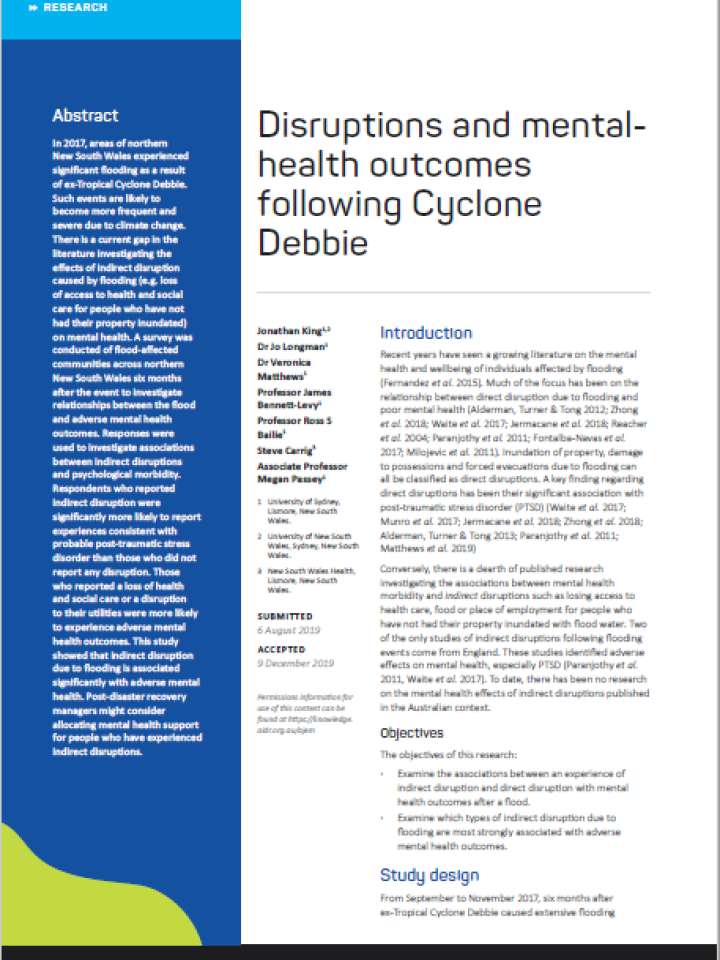Disruptions and mental-health outcomes following Cyclone Debbie
In 2017, areas of northern New South Wales experienced significant flooding as a result of ex-Tropical Cyclone Debbie. Such events are likely to become more frequent and severe due to climate change. There is a current gap in the literature investigating the effects of indirect disruption caused by flooding (e.g. loss of access to health and social care for people who have not had their property inundated) on mental health. A survey was conducted of flood-affected communities across northern New South Wales six months after the event to investigate relationships between the flood and adverse mental health outcomes. Responses were used to investigate associations between indirect disruptions and psychological morbidity. Respondents who reported indirect disruption were significantly more likely to report experiences consistent with probable post-traumatic stress disorder than those who did not report any disruption. Those who reported a loss of health and social care or a disruption to their utilities were more likely to experience adverse mental health outcomes. This study showed that indirect disruption due to flooding is associated significantly with adverse mental health. Post-disaster recovery managers might consider allocating mental health support for people who have experienced indirect disruptions.
Explore further
